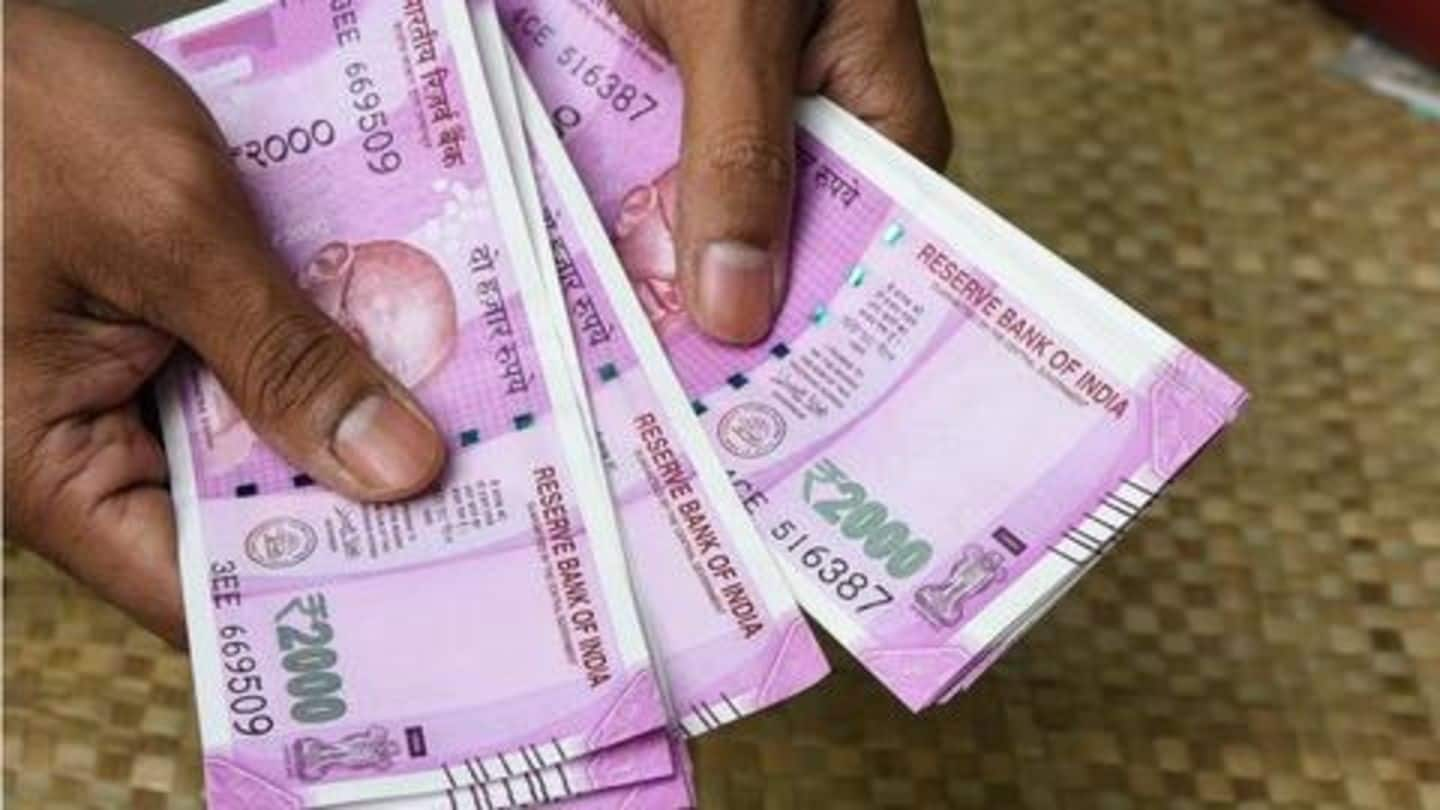
India's super-rich may face wealth tax to aid coronavirus-hit economy
What's the story
In a bid to reduce the impact of the coronavirus pandemic on the economy, 50 Indian Revenue Service (IRS) officers have suggested a 40% tax for the super-rich, a one-time COVID-19 relief cess of 4%, etc.
The tax officers have listed their recommendations in a policy paper reportedly sent to the Prime Minister's Office (PMO) and the Union Finance Ministry on Saturday.
Details
'Super-rich' have higher obligation to ensure larger public good: Taxmen
According to The Print, the IRS officers have detailed their suggestions in a policy paper titled 'Fiscal Options & Response to COVID-19 Epidemic' (FORCE), which was also sent to the Central Board of Direct Taxes (CBDT).
In the paper, the tax officers state that to revive the economy, "the 'super-rich' have a higher obligation towards ensuring the larger public good."
Rich tax
40% tax for those earning about Rs. 1 crore
Reportedly, the paper recommends raising the income tax rate from 30% to 40% for those earning above Rs. 1 crore annually or re-introducing the wealth tax for those earning more than Rs. 5 crore.
The government has been advised to identify 5-10 "most crucial projects or schemes" for reviving the economy and utilizing the additional revenue exclusively for them.
Information
One-time cess of 4% for COVID-19 relief
It has also been recommended to levy a one-time cess of 4% for COVID-19 relief on those with a taxable income of over Rs. 10 lakh. The IRS officers reportedly estimate that this could generate additional revenue of Rs. 15,000-18,000 crore.
Incentives
Incentives proposed for mobilization of CSR funds
According to the report, the tax officers also recommend extending tax incentives for the mobilization of CSR funds for COVID-19.
They suggested treating salaries paid to non-managerial staff during the coronavirus pandemic as part of a corporate's CSR obligation. This would incentivize continued wages during non-working days, they argued.
They also recommended a new tax-saving scheme to mobilize more funds.
Information
Increased tax for digital, e-commerce platforms
The paper also suggested increasing the tax imposed on online companies such as Netflix, Amazon Prime, Zoom, etc., from 6% to 7% under the equalization levy or "Google Tax." It also suggested increasing the tax imposed on e-commerce work from 2% to 3%.
Expense
Tax officers recommend Rs. 3,000-5,000 direct cash transfer to poor
Further, the paper suggested a monthly direct cash transfer of Rs. 3,000-5,000 for at least six months to the most economically disadvantaged 12 crore households.
It also stated that the crisis presents an opportunity to expand MGNREGA (Mahatma Gandhi National Rural Employment Guarantee Act) and focus on schemes such as the building of rural roads, public health infrastructure, primary school buildings, etc.
Health sector
3-year tax break for firms in healthcare sector
The paper recommended letting the healthcare sector drive the economy by proposing a three-year tax break for corporates, firms, and businesses in the healthcare sector.
According to The Print, the paper stated, "The scope can have an exclusive definition, and must incorporate manufacturing of pharmaceuticals, medical-grade masks, gloves, gowns, ventilators, testing labs, construction contractors involved in the building of hospitals/primary health centers, etc."
Other recommendations
Paper also listed suggestions to boost consumption
To boost consumption by increasing disposable income, the paper also recommended the loss suffered by retail investors due to the recent stock market slump to be set-off from their salary. This is aimed at reducing tax liability on the losses suffered.
It also recommended the government to not consider bonuses or other allowances to employees earning less than Rs. 10 lakh as taxable income.